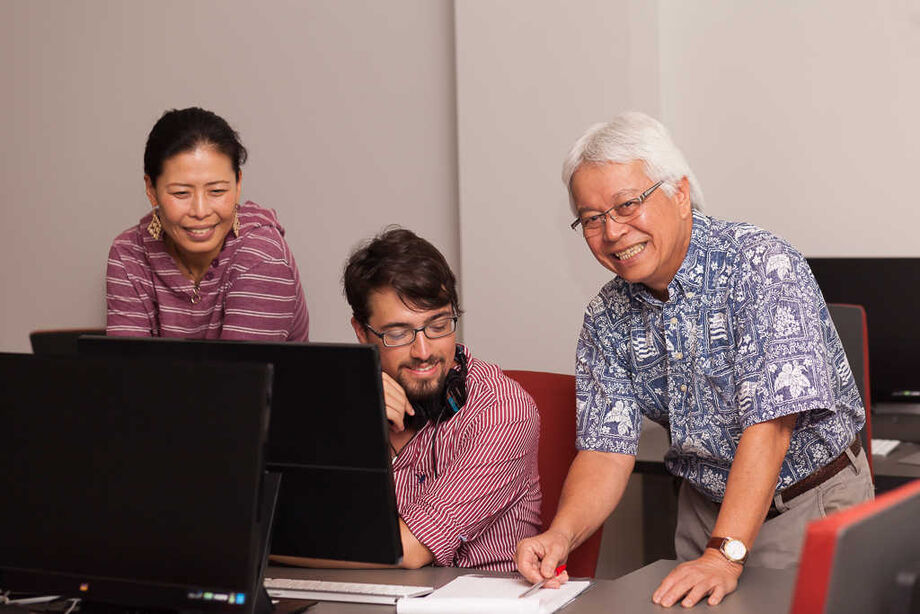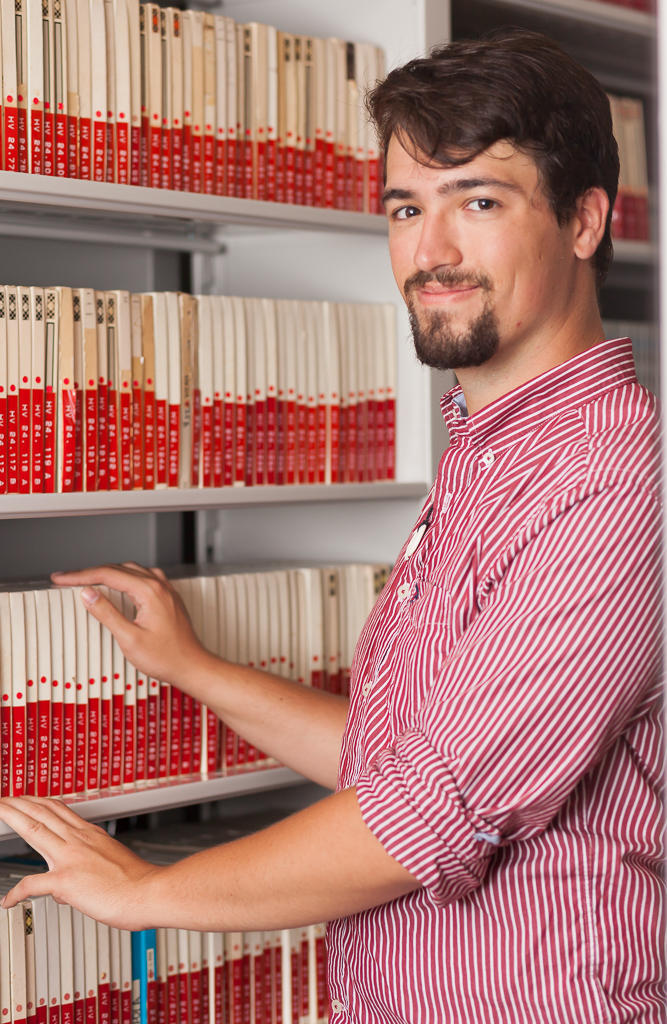
Myoung-Ja Hwa, Justin Kalaniali‘i Stoleson, and Larry Kimura (left to right) are part of a group of scholars digitizing Kimura’s 1970s radio show Ka Leo Hawai’i for online listening. Image courtesy of Kaniʻāina. Photograph by Clara Hagan.
From 1972–1988 Native Hawaiian language activist and University of Hawai’i at Hilo professor Larry Kimura broadcast Ka Leo Hawaiʻi. This radio show, which quickly moved from a bi-weekly, 30-minute format to a weekly one-hour engagement, interviewed Native Hawaiian elders in the Hawaiian language. At a time when the Hawaiian language was in danger of dying out altogether, the show was seen as a significant validation of the language and the Hawaiian way of life. Forty years later, these audio recordings are an invaluable resource. With funding from the National Endowment for the Humanities’ and the National Science Foundation’s Documenting Endangered Languages program, Keiki Kawaiʻaeʻa and partners at the University of Hawaiʻi Hilo and the University of Hawaiʻi Mānoa have created Kaniʻāina, or Voices of the Land—an online bilingual digital repository for these recordings, ensuring they are preserved and accessible now and in the future.
